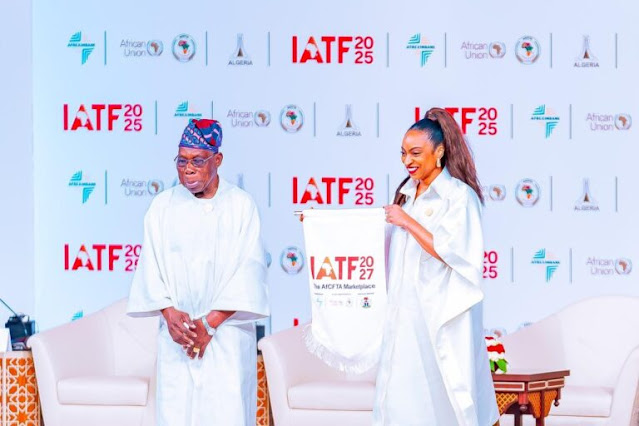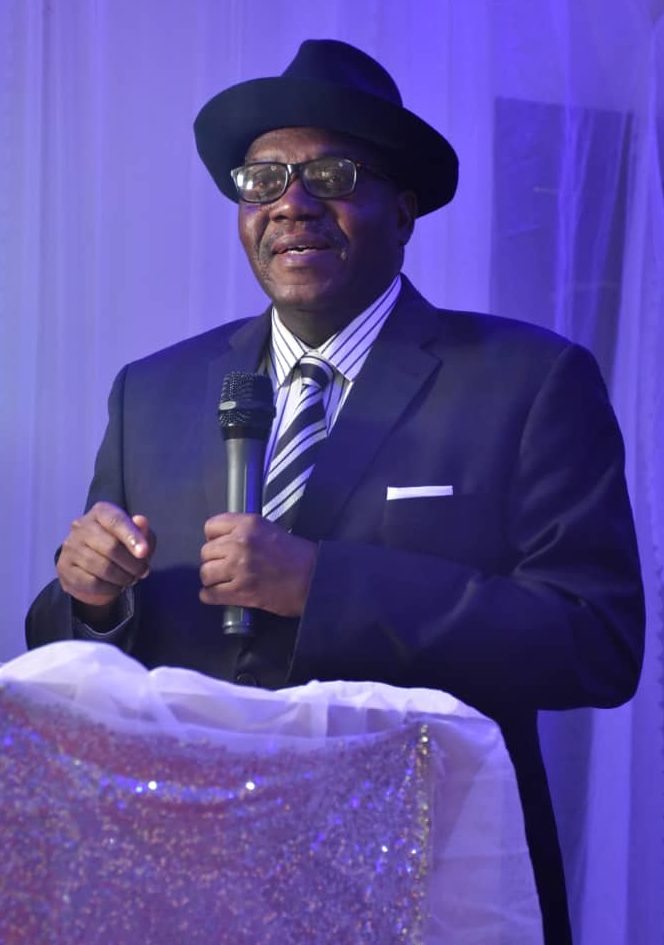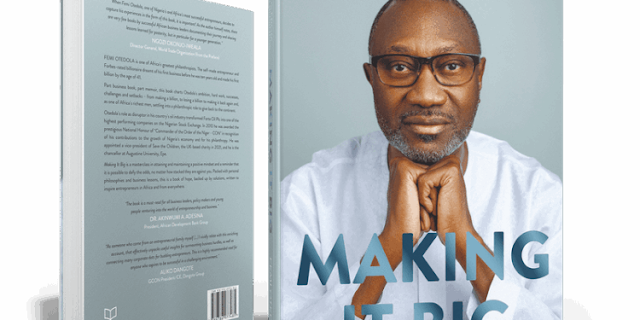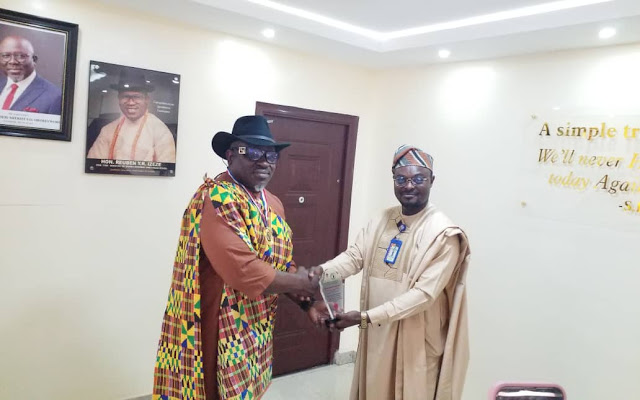In a momentous achievement for the African continent’s economic landscape, Nigeria has emerged victorious in its bid to host the 5th edition of the Intra-African Trade Fair (IATF) in 2027. This announcement, made during the ongoing 4th IATF in Algiers, Algeria, underscores Nigeria’s growing influence in fostering intra-African trade and integration. The decision was officially revealed by the African Export-Import Bank (Afreximbank), the primary organizer of the event, marking a significant milestone for West Africa’s largest economy. As the host nation, Nigeria is poised to showcase its vast potential as a hub for commerce, innovation, and collaboration among African nations.
The Intra-African Trade Fair has become a cornerstone event in Africa’s economic calendar since its inception. Established by Afreximbank in 2018, the IATF serves as a premier platform for business-to-business interactions, policy dialogues, and investment opportunities across the continent. The fair rotates among different African countries every two years, with previous editions hosted in Egypt (2018), Rwanda (2021), and now Algeria (2024). Each iteration has seen exponential growth in participation, with the 2024 event in Algiers attracting over 25,000 visitors from more than 50 countries, including high-level delegations from governments, private sector leaders, and international organizations.
Nigeria’s successful bid was no small feat. The selection process involved rigorous evaluations by Afreximbank’s board, considering factors such as infrastructure readiness, logistical capabilities, security measures, and the host country’s commitment to the African Continental Free Trade Area (AfCFTA) agenda. Nigeria, with its expansive economy valued at over $440 billion and a population exceeding 200 million, presented a compelling case. The country’s strategic location in West Africa, coupled with its robust transportation networks—including major seaports in Lagos, airports like Murtala Muhammed International in Ikeja, and an extensive road and rail system—positions it ideally for hosting such a large-scale international event.
President Bola Ahmed Tinubu, who has made economic diversification and regional integration key pillars of his administration, hailed the win as a “testament to Nigeria’s pivotal role in Africa’s economic renaissance.” In a statement released from the Presidential Villa in Abuja, Tinubu emphasized that hosting the IATF 2027 would not only boost Nigeria’s domestic economy but also accelerate the implementation of the AfCFTA, which aims to create a single market for goods and services across 54 African nations. “This is more than an event; it’s a catalyst for transformative trade partnerships that will uplift millions of Africans,” Tinubu remarked, underscoring the government’s resolve to invest in world-class facilities for the fair.
The bid’s success can be attributed to a concerted effort by various stakeholders. The Nigerian delegation, led by the Minister of Industry, Trade and Investment, Dr. Doris Uzoka-Anite, engaged in extensive lobbying during the Algiers fair. Uzoka-Anite, in her address at the closing ceremony, highlighted Nigeria’s readiness: “We bring to the table a dynamic private sector, innovative startups, and a youthful population eager to engage in pan-African trade. Our hosting will be inclusive, sustainable, and impactful.” Her team collaborated closely with Afreximbank officials, presenting detailed proposals on venue options, such as the expansive Lagos International Trade Fair Complex, which has hosted numerous global exhibitions in the past.
Afreximbank’s President and Chairman of the Board of Directors, Prof. Benedict Okey Oramah, played a crucial role in the announcement. Speaking at the event’s finale on September 7, 2024, Oramah praised Nigeria’s proposal for its alignment with the bank’s mission to promote non-resource-based trade within Africa. “Nigeria’s bid stood out for its comprehensive vision, including digital integration and youth empowerment initiatives,” Oramah stated. He further noted that the IATF has already facilitated over $2.5 billion in trade deals since its launch, and the 2027 edition under Nigeria’s stewardship is expected to surpass this figure significantly.
To fully appreciate the implications of this victory, it’s essential to delve into the broader context of intra-African trade. Currently, intra-African trade accounts for only about 18% of the continent’s total trade, a stark contrast to over 60% in Europe or Asia. Factors such as high tariffs, poor infrastructure, and non-tariff barriers have long hindered progress. The AfCFTA, launched in 2021, seeks to address these challenges by eliminating 90% of tariffs over a decade. The IATF complements this by providing a practical arena for businesses to negotiate deals, form joint ventures, and explore supply chains.
Nigeria, as Africa’s most populous nation and a major player in oil, agriculture, and manufacturing, stands to benefit immensely. The country exports commodities like crude oil, cocoa, and sesame seeds, while importing machinery, vehicles, and processed foods. Hosting the IATF could open doors for Nigerian exporters to access new markets in East, North, and Southern Africa. For instance, small and medium-sized enterprises (SMEs) in sectors like textiles, agro-processing, and ICT could gain visibility and secure contracts worth millions. The event is anticipated to draw over 35,000 participants, generating direct economic impacts through tourism, hospitality, and ancillary services.
Preparations for IATF 2027 have already begun in earnest. The Nigerian government has established a National Organizing Committee, chaired by the Minister of Foreign Affairs, Yusuf Tuggar, to coordinate efforts. This committee will work in tandem with Afreximbank to develop a theme for the fair, likely focusing on “Digital Trade and Sustainable Development” to reflect emerging trends. Infrastructure upgrades are a priority; plans include enhancing the Lagos-Ibadan Expressway, expanding conference facilities at the Eko Hotel and Suites, and integrating digital platforms for virtual participation to ensure broader accessibility.
One of the standout features of the IATF is its emphasis on inclusivity. Past editions have dedicated pavilions for women entrepreneurs and youth-led businesses, recognizing their vital contributions to Africa’s economy. In Nigeria, where women constitute 70% of the agricultural workforce but face barriers to market access, the fair could serve as a launchpad for empowerment programs. Similarly, with Africa’s youth population projected to reach 830 million by 2050, initiatives like startup pitch sessions and innovation challenges will be amplified under Nigeria’s hosting.
The win also carries geopolitical significance. Amid global economic uncertainties, including supply chain disruptions and inflationary pressures, African nations are increasingly looking inward for growth. Nigeria’s role as host reinforces its leadership in the Economic Community of West African States (ECOWAS) and the African Union. It signals a shift from being Africa’s “giant” in potential to a proactive driver of continental prosperity. Critics, however, caution that success depends on addressing domestic challenges like power supply inconsistencies and bureaucratic hurdles. Uzoka-Anite addressed these concerns, assuring that the government is fast-tracking reforms, including the passage of the Investment Promotion Bill to streamline business registrations.
Looking back at previous IATFs provides insight into what Nigeria can expect. The inaugural event in Cairo, Egypt, in December 2018, featured over 1,000 exhibitors and resulted in $52 billion in investment pledges. Despite the COVID-19 pandemic, the 2021 virtual-physical hybrid in Kigali, Rwanda, generated $42.5 billion in commitments. The current 2024 fair in Algiers has already secured deals exceeding $3 billion, with sessions on critical topics like green energy and e-commerce. These successes illustrate the fair’s tangible outcomes, from signed memoranda of understanding to long-term partnerships.
For Nigeria, the economic ripple effects could be profound. The hospitality sector alone stands to gain, with hotels, restaurants, and transport services anticipating a surge in demand. Lagos, the commercial nerve center, is expected to be the primary venue, but satellite events in Abuja and Port Harcourt could distribute benefits nationwide. Job creation is another key area; temporary positions in event management, security, and logistics could number in the tens of thousands, while permanent opportunities in trade facilitation may follow.
Moreover, the IATF 2027 aligns with Nigeria’s Renewed Hope Agenda, which prioritizes export-led growth. The Nigerian Export Promotion Council (NEPC) has outlined strategies to prepare exporters, including capacity-building workshops and matchmaking programs. “We are not just hosting; we are positioning Nigeria as the gateway to Africa,” said NEPC’s Executive Director, Nonye Ayeni. Collaborations with regional bodies like the West African Economic and Monetary Union (UEMOA) will ensure seamless participation from neighboring countries.
Environmental sustainability is also on the agenda. Afreximbank has committed to carbon-neutral events, and Nigeria plans to incorporate green practices, such as solar-powered pavilions and waste recycling. This resonates with global calls for climate action, especially as Africa contributes minimally to emissions but suffers disproportionately from climate change.
Challenges notwithstanding, the optimism is palpable. Business leaders from the Manufacturers Association of Nigeria (MAN) have pledged support, viewing the fair as an opportunity to showcase made-in-Nigeria products. International partners, including the United Nations Economic Commission for Africa (UNECA) and the World Trade Organization (WTO), have congratulated Nigeria and expressed interest in co-sponsoring sessions.
As the curtains close on the Algiers edition, all eyes turn to 2027. Nigeria’s hosting of the IATF represents more than a logistical endeavor; it’s a bold step toward realizing the dream of a united, prosperous Africa. Through enhanced trade, innovation, and solidarity, the event promises to weave stronger economic threads across the continent, with Nigeria at the forefront.
In the weeks following the announcement, reactions poured in from across Africa. South African Trade Minister Parks Tau lauded the decision, stating, “Nigeria’s vibrancy will infuse new energy into the IATF.” Kenyan entrepreneur Mary Wanjiku, who attended the Algiers fair, shared her excitement: “As a small business owner in apparel, I’m eager to explore Nigerian markets.” Domestically, the Nigerian Chamber of Commerce, Industry, Mines and Agriculture (NACCIMA) organized a webinar to discuss preparation strategies, drawing hundreds of participants.
To ensure the event’s success, public-private partnerships will be crucial. Telecom giants like MTN and Airtel have offered to provide high-speed internet, while banks such as Zenith and Access are exploring financing options for exhibitors. The federal government has allocated initial funding in the 2025 budget, with calls for state governments to contribute.
Education and awareness campaigns are underway to maximize participation. The Ministry of Education plans to involve universities in showcasing research on trade economics, fostering a new generation of trade experts. Youth organizations like the National Youth Council of Nigeria are mobilizing young innovators for demo days.
Security remains a priority, given Nigeria’s complex terrain. The event will leverage advanced technologies like AI-driven surveillance and collaborate with international security firms. Past IATFs have been incident-free, setting a high bar.
Economists project that IATF 2027 could contribute up to $5 billion to Nigeria’s GDP through direct and indirect channels. This includes foreign exchange inflows from visitor spending and boosted exports post-event. For SMEs, which make up 96% of Nigerian businesses, the fair offers a rare chance to scale up.
In conclusion, Nigeria’s triumph in securing the IATF 2027 bid is a clarion call for action. It embodies the spirit of AfCFTA and the aspirations of 1.4 billion Africans. As preparations unfold, the nation must harness this opportunity to not only host a spectacular event but to ignite lasting trade revolutions. The road to 2027 is paved with potential, and Nigeria is ready to lead the way.






